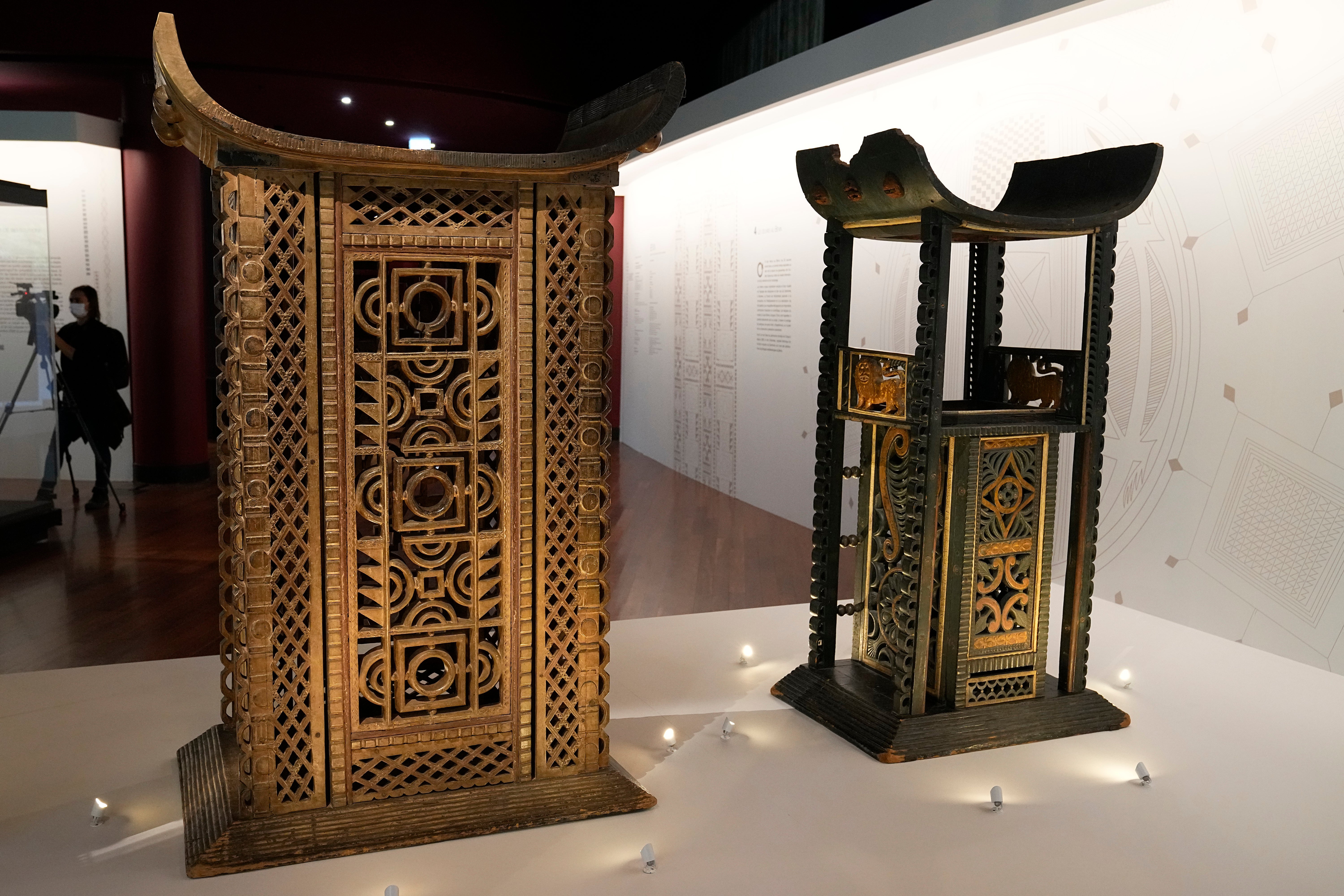Colonial art: Cambridge hands over looted bronze to Nigeria
A Cambridge University college is handing over a bronze cockerel looted from Africa in the 19th century to Nigerian authorities

Your support helps us to tell the story
From reproductive rights to climate change to Big Tech, The Independent is on the ground when the story is developing. Whether it's investigating the financials of Elon Musk's pro-Trump PAC or producing our latest documentary, 'The A Word', which shines a light on the American women fighting for reproductive rights, we know how important it is to parse out the facts from the messaging.
At such a critical moment in US history, we need reporters on the ground. Your donation allows us to keep sending journalists to speak to both sides of the story.
The Independent is trusted by Americans across the entire political spectrum. And unlike many other quality news outlets, we choose not to lock Americans out of our reporting and analysis with paywalls. We believe quality journalism should be available to everyone, paid for by those who can afford it.
Your support makes all the difference.A Cambridge University college handed over a bronze cockerel looted from Africa in the 19th century to Nigerian authorities on Wednesday, as part of a modest but growing effort in some European countries to return African art taken by colonial powers.
Jesus College is the first U.K. institution to give back one of the artifacts known as the Benin Bronzes. British colonial forces took the Okukor statue in 1897 from the Court of Benin in what is now Nigeria – among thousands of artworks seized by occupying troops -- and it was given to the college in 1905.
The college removed it from public view in 2016 after students protested, saying it represented a colonial narrative. The college set up a working group that concluded the statue belongs to the Oba of Benin, head of the historic Eweka dynasty of the Benin Empire. The empire centered on Benin City in modern-day Nigeria.
His Royal Majesty, Oba of Benin, Omo N’Oba N’Edo Uku Akpolokpolo, Ewuare II, welcomed the handover decision. “We truly hope that others will expedite the return of our artworks, which in many cases are of religious importance to us,” he said when it was announced.
Hundreds of seized Benin Bronzes ended up in the British Museum in London, and hundreds more were sold to other collections such as the Ethnological Museum in Berlin. Germany this year said it would return the items in its possession.
The British Museum said on Monday it is working on a collaboration with Nigeria, linked to the construction of a new museum in the West African country, which will allow to “reunite Benin artworks from international collections.” The museum is also in a decades-long tug-of-war with the Greek government over a restitution of the Elgin, or Parthenon, Marbles.
Meanwhile France next month will hand over 26 looted colonial-era artifacts to the government of Benin – some of the estimated 90,000 African artworks held in French museums.
The wooden anthropomorphic statues, royal thrones and sacred altars from the collection known as the “Abomey Treasures” were pilfered by the French army 129 years ago, and are currently on display in Paris.
President Emmanuel Macron is visiting the exhibit on Wednesday with Benin authorities. Macron has called for more such returns, lamenting in 2017 “that a large part of many African countries’ cultural heritage lies in France.”
Such returns are controversial in Europe where many museums hold works acquired during colonial times. So far, France has only turned over one item — a sword handed to the Army Museum in Senegal.